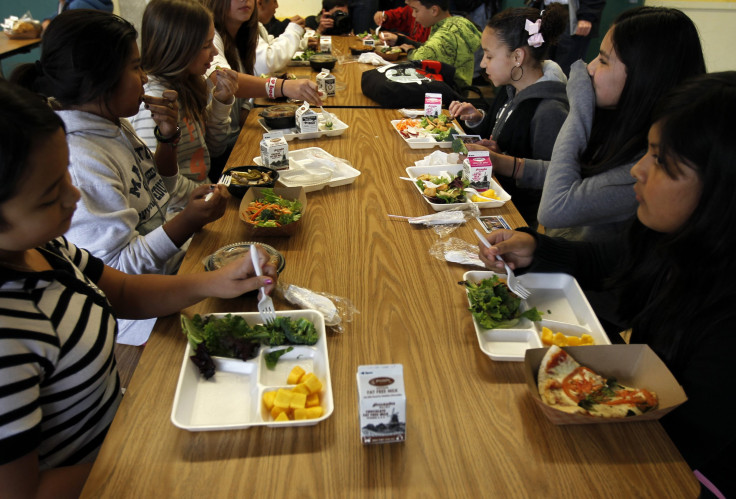School Lunch Black Market? Healthy Meals In Indiana Spur Students To Bring, Sell Sugar, Salt And Pepper

Students in Indiana have reportedly set up a black market where they swap condiments to literally spice up their healthy school lunches. John S. Payne, president of the Blackford County School Board of Trustees, revealed the underground system Wednesday before the House's Subcommittee on Early Childhood, Elementary and Secondary Education while testifying in favor of loosened restrictions.
Payne and other administrators said the Healthy Hunger-Free Kids Act, which was championed by first lady Michelle Obama, has unintended consequences on schools. "Perhaps the most colorful example in my district is that students have been caught bringing -- and even selling -- salt, pepper and sugar in school to add taste to perceived bland and tasteless cafeteria food," Payne added, according to a copy of his remarks. "This 'contraband' economy is just one example of many that reinforce the call for flexibility."
Educators and lobbyists have been complaining since the Healthy Hunger-Free Kids Act's strict school nutrition rules went into effect in 2011. Cafeteria workers have said they struggled to afford healthier ingredients, and schools reported kids throwing away their meals uneaten. With the law set to expire Sept. 30, people like Payne were calling for the government to ease up on the requirements, the Hill reported.
"We’re too busy checking boxes to do the work of ensuring more students receive nutritious meals,” said South Dakota's education secretary, Melody Schopp, according to a news release.
The idea of a black market for unauthorized foods was nothing new. In 2011, a Los Angeles Times story found that at least two teachers there were discovered selling instant noodles and chips to students. The next year, Massachusetts' South Coast Today wrote about a system where local students sold 50-cent packets of chocolate syrup their peers could add to their milk.
But at least one nutrition program director told the House subcommittee she hadn't had a problem with the healthy lunch rules. The Hill reported Donna Martin, of Burke Country Public Schools in Georgia, said her kids liked the whole-grain and fresh foods cafeterias were serving.
“We found that when we started offering local fresh fruits and vegetables like collards, cabbage, corn on the cob, broccoli, carrots, berries, melons, peaches, our consumption rate doubled,” Martin said.
© Copyright IBTimes 2024. All rights reserved.






















